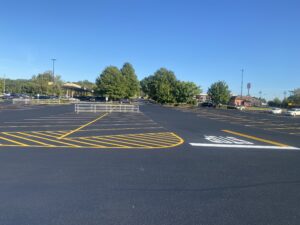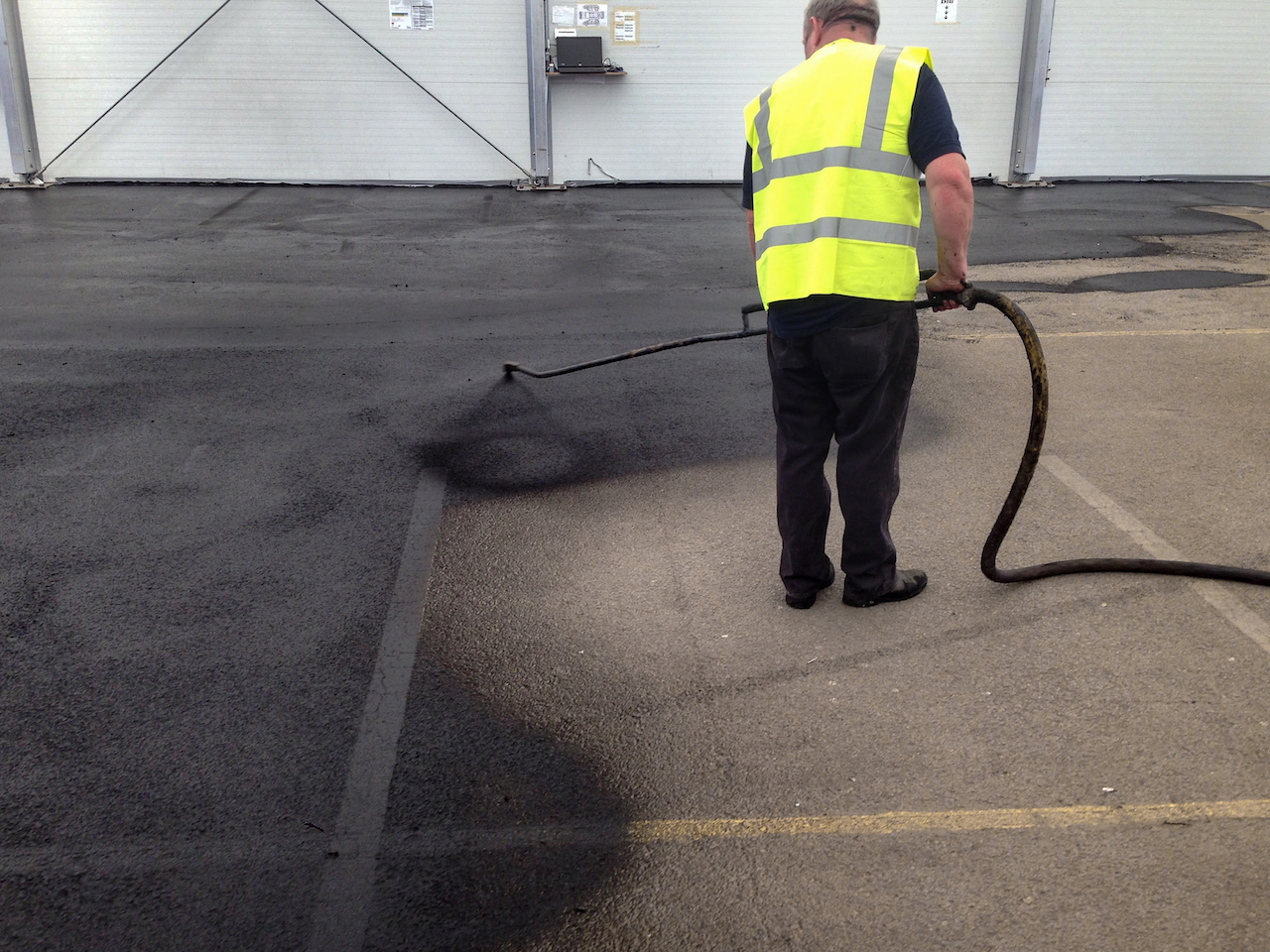
How Do Professionals Prepare for an Asphalt Sealcoating Project?
Whether they are sealcoating parking lots or streets, contractors must fit together all of the pieces of the project. Experienced sealcoating companies know that they must learn all they can about the customer’s pavement as quickly as possible. The age of the pavement, for example, can tell a knowledgeable sealcoating contractor a great deal. If the pavement is quite old, the contractor may need to make numerous repairs or even prime the entire pavement. Conversely, you do not want to sealcoat parking lots or other pavements too quickly after construction. Sealcoating contractors also want to know the approximate date of the pavement’s last sealing. Sealcoating Marietta GA pavements too frequently can cause problems that are sometimes as bad as not sealcoating them often enough. One of the best ways for a sealcoating contractor to gather information on a pavement is to visit the site. Contractors can identify potential issues, including heavily shaded areas, drainage problems, or areas coated with tree sap. After amassing the necessary information, contractors can then create a workable plan.
What Does an Asphalt Sealcoating Plan Include?
When sealcoating companies create a plan, they consider all elements, including those that are unique to the specific project.
1. Are there cracks that need to be repaired? If so, how many cracks are there, and where are they?
2. What measures are necessary to control traffic in or around the work area?
3. What equipment will be best for the application itself?
4. How many crew members will the job require?
5. Does the customer have any special requests? For example, is there one area of the parking lot that should be completed first?
6. How long will the job take?
7. How many coats of sealant are necessary?
8. Which brand of sealcoating is best for the job?
After Creating a Plan, What Will Sealcoating Companies Do Next?
Once a contractor creates a viable plan, the next step is to execute it. The contractor may complete some tasks, including crack repairs, prior to the scheduled date for the sealcoat application. Typically, however, contractors do not complete the following steps until the scheduled date.
1. Erect barricades to prevent vehicles or pedestrians from intruding into the work area.
2. If needed, fill or seal any open cracks.
3. Trim back grass or weeds that are too close to the edges of the pavement.
4. Sweep the pavement to remove any trash, dead leaves, or grass clippings.
5. Clean the pavement to remove any sand or dirt.
6. Clean up puddles of oil or other automotive fluids.
7. If necessary, clean the pavement again. Of all the steps taken to prepare to sealcoat, cleaning is one of the most critical. Loose gravel, dirt, and even tree sap can prevent the creation of a strong bond between the sealcoat and the pavement.
8. Apply a primer to oil stains and other areas if it is necessary to ensure an adequate bond.
At MH Greeson, we specialize in asphalt maintenance for commercial clients throughout Atlanta, Marietta and North Georgia. Our services include sealcoating, asphalt crack repair, ADA compliance, asphalt paving, parking lot striping, traffic signage, parking lot maintenance, bollard installation, car stops, and pavement markings. We have an exemplary reputation for craftsmanship and service, but our rates are highly competitive. Contact us today to request a free quote. You can call us at 770-335-2983, email Tripp@MHGreesonPaving.com, or fill out our online form.




